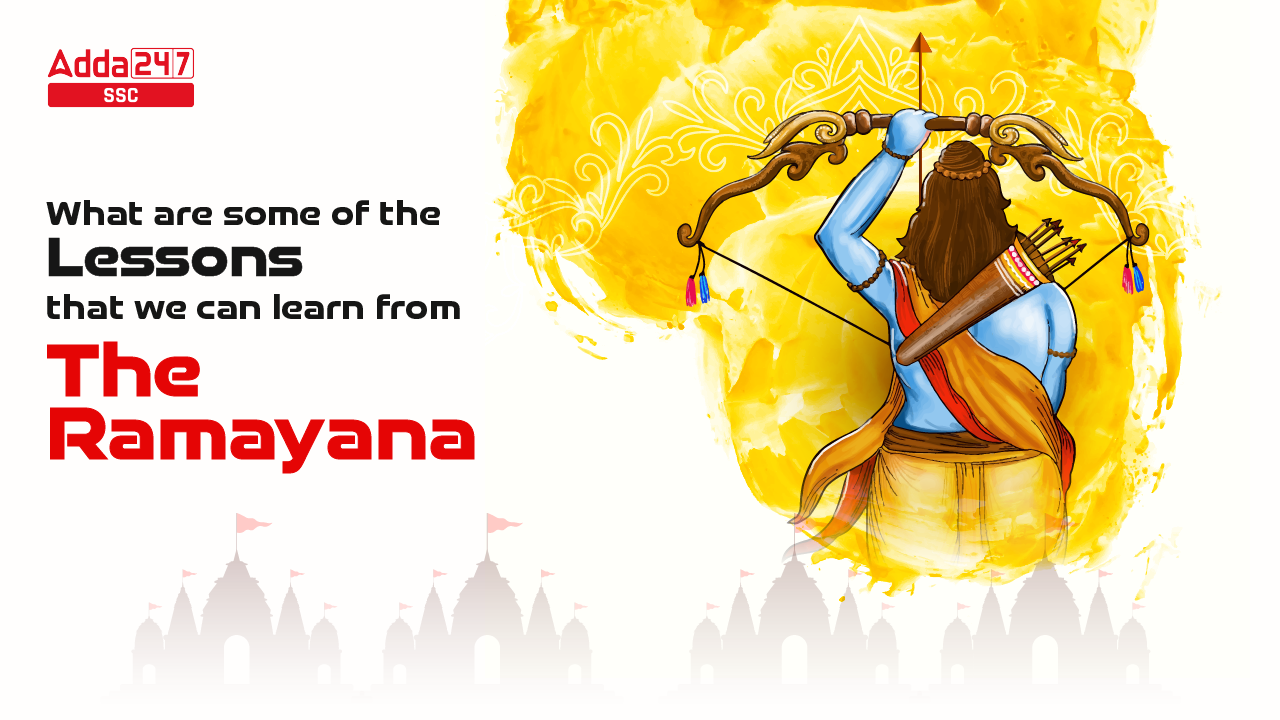Ramayana
The ‘Ramayana’ is an ancient Hindu epic about the story of Lord Rama who was the seventh form of Lord Vishnu. It is one of the two most important ancient epics of India, the first one is Mahabharat. Ramayana was originally written by Rishi Valmiki in Sanskrit probably somewhere around 8th BCE. The book has about 24,000 verses and is divided into seven parts. The story of Ramayana is about Lord Rama who has been exiled from his kingdom Ayodhya with his wife Sita and his younger brother Lakshman. Sita was kidnapped by Ravan king of Lanka and Lord Rama goes to kill Ravan in a long battle to get back his wife Sita. The book Ramayana has been translated into all the major languages of the world.
What are the some Lessons that we can learn from Ramayana
In Ramayana there are many good lessons which we can learn from it. In this article we discuss some lessons which we learn from Ramayana.
- Sacrifice and Selflessness: The first lesson which we learned from Ramayana is Sacrifice and Selflessness. Lord Rama’s sacrifice and selflessness for the well-being of his family. He sacrificed his kingdom and home for the happiness or respect of his father.
- Attachment to service and not to the position: Ram was willing to become the king as a service to Maharaja Dasarath and he was also willing to go to the forest as a service to his father.
- Patience, Determination and Enthusiasm: Patience, Determination and Enthusiasm is an example of Sabri from Ramayana. A long time ago, Guru had asked her to wait for Lord Ram while all other disciples and Guru himself went back to Godhead. She showed her enthusiasm by working hard everyday to clean the place, plucking fruits for Lord.
- Value Relationship rather than Greed: King Dasharath had four sons and all had different characters, but still, there was unity among them. There was love among all the brothers of Lord Shree Rama, there was no room for greed and anger in such love. Laxshman spent 14 years in exile with his elder brother Shree Rama. On the other hand, Bharat turned down the chance of the throne for his elder brother. These lessons of brotherly love inspire us to value relationships rather than greed and worldly pleasures.
- Lesson of Politeness: Behavior of Lord Rama was polite. We should treat everyone equally, irrespective of position and age. We should also have love and kindness towards animals. There was a sense of respect for everyone, which we learn from Shree Ram’s life.
- Helping of People in need: Shree Ram helped Sugreev in taking his kingdom back from his cruel brother Bali. Sugreev and Hanuman ji help Shree Ram in taking back Sita from Lanka. This shows we should always help the needy because one help makes our life better.
- Management, Lessons and Motivation: Jamwant ji inspired Hanuman ji to go to Lanka after realizing her strength and powers, in search of Goddess Sita is that story of Ramayana, in which the use of management principles is visible. Jamwant ji motivating Hanuman ji is the best example of a good manager who introduced his co-workers to their potential. Then helps him to do the work according to his ability.
- Stay Away from Negative People: Queen Kaikeyi who was the third wife of King Dasharath, loved Rama more than her son Bharat. But her maid, Manthara poisoned her mind with negativity against Lord Rama. Manthara convinced Kaikeyi to send Rama inot exile of 14 years and insisted on Bharat being crowned as the king of Ayodhya. So, this story of Kaikeyi teaches us to stay away from negative people. A negative mind can easily brainwash all the good things inside you.



 Upcoming Government Exams, Complete Govt...
Upcoming Government Exams, Complete Govt...
 SSC Exam Calendar 2025–26 Out, Check All...
SSC Exam Calendar 2025–26 Out, Check All...
 RRB JE 2024 Notification, CBT 2 Exam Dat...
RRB JE 2024 Notification, CBT 2 Exam Dat...


